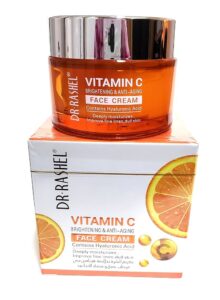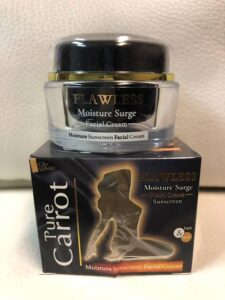
There aren’t any supplements or foods that kills sperm in the female body or act as contraceptives. The most effective method of preventing an unintended pregnancy is to choose a regular form of contraception that works for you. But if you are looking for a less harmful ways to prevent pregnancy rather than using pills, then walk with me as I unveil the secrets.
After having sex, some people may want to kill or remove semen. However, there is no known scientific method to remove semen once it has entered the cervix through the vaginal canal.
After sex, there are a few safe ways to clean the vagina and the surrounding tissues. On the other hand, if someone wants to avoid getting pregnant, they should consult a doctor.
Read Also: 7 Best Food That Makes Baby Fat In Nigeria
This article examines the efficacy of cleaning the vagina after sex in terms of removing semen. We also discuss how to prevent pregnancy using birth control.
How To Clean The Vagina After Sex
The cervix and vaginal opening are connected by the flexible vaginal canal. The vagina and the vulva, the exterior portion of the female genitalia, are frequently confused by people.
There’s no need to clean the vagina after intercourse because it cleans itself. That being said, some folks could like this.
There are multiple approaches to accomplish this. Washing the vaginal area gently with warm water is the easiest method.
It is advised by the American Sexual Health Association to use gentle, fragrance-free soap in the vaginal region. It is advised to stay away from fragrant soaps because they can irritate the vagina by changing its pH.
Some people may consider douching the vagina, which involves squirting a jet of water into it with a shower douche or bottle. However, doctors do not recommend douching under any circumstances. Research suggests it reduces the number of healthy bacteria in the vagina, potentially leading to various health issues.
Read Also: 5 Best Whitening Lotion For Babies
Can You Remove Semen?
After sexual activity, some people may choose to remove semen from their vagina because they think it’s more hygienic or can help them avoid getting pregnant.
Semen is a fluid mixture that includes sperm, vitamins, and minerals. The male reproductive cell is called sperm. Pregnancy may result from its combination with a female’s egg.
Within minutes of ejaculating, semen enters the uterus and can remain in the vagina for up to seven days. There is no known method, supported by science, for removing sperm once it has entered the uterus.
There may be a few minutes to several hours of vaginal discharge following sexual activity. This is primarily a mixture of proteins and vitamins from ejaculation, though it may contain sperm.
While anecdotal evidence indicates that there are ways to remove semen from the vagina, there is no scientific proof to support these claims. Some of the proposed techniques include:
- Urination: It’s a common misconception that peeing after sexual activity will remove sperm from the vagina. Urinating, however, does not eliminate sperm from the vagina since urine exits through a tiny opening known as the urethra.
- Showering or dousing: While the water won’t get to the semen in the uterus, people may try to remove semen from their vagina by showering or doucheing, but this is unlikely to be successful.
- Bathing: Since the water won’t get to the uterus, taking a bath to get rid of semen won’t work either.
- Vinegar: Because vinegar has a high acidity level, some people think that putting it in the vagina may kill sperm. This is not supported by scientific research, and applying vinegar to the vagina may lead to irritation.
Does It Work? Foods That Kills Sperm In The Female Body
There isn’t much data to support a successful method of vaginal semen removal.
Individuals who want to avoid getting pregnant after having sex without using birth control should get in touch with a doctor right once. Plan B or other emergency contraception may be prescribed by the physician.
The morning-after pill, or Plan B, prevents the ovary from producing an egg. Plan B can be taken up to 72 hours after sexual activity, although it works better if taken sooner.
Read Also: E45 Lotion: Things You Must Know
How To Avoid Getting Pregnant
There are a number of really successful methods to try to avoid getting pregnant.
Although hormonal and nonhormonal birth control are the most common forms of birth control, some people may also think about natural or surgical options.
- Hormonal Techniques: Hormonal intrauterine devices (IUDs), the pill, and the micro pill are examples of hormonal methods of contraception. These all contain hormones that usually suppress ovulation, but they vary in dosage and mode of delivery.
- Nonhormonal Techniques: For those who are unable to utilize hormonal methods or do not want to, there are a few nonhormonal methods of contraception available. These consist of nonhormonal IUDs, diaphragms, and condoms for both sexes.
- Natural Approaches: Some people may decide to use natural techniques, such abstinence, which is the decision to forgo sexual activity. Abstinence can be chosen by someone for personal or religious reasons.
- Surgical Techniques: Some people may think about a permanent technique to avoid getting pregnant. The fallopian tubes are cut and tied during a tubal ligation. By halting the process, this technique can avoid pregnancy by stopping the release of an egg.
Those who want to use birth control should talk to their doctor about their options to find the one that works best for them. Some are better than others at keeping women from getting pregnant.
However, abstinence is the only surefire strategy to avoid becoming pregnant.
Study up on the various birth control methods.
Factors That Affect Sperm Viability in the Female Body
Prior to fertilizing an egg inside the female reproductive system, sperm have to deal with a number of environmental variables that can significantly affect their motility and viability. The immune system’s reaction, cervical mucus consistency, and the sensitive pH balance all have a significant impact on how the conditions for conception are created. Let’s examine how these variables affect how sperm travel through the female body.
1. pH Levels
The female reproductive tract’s pH levels are crucial in establishing conditions that support sperm movement and survival. For example, the vagina maintains an acidic pH to prevent the formation of infections and dangerous germs. But this acidic environment can present difficulties for sperm, since it can affect their viability and motility. A more alkaline environment is encountered by sperm as they go toward the fallopian tubes, which is necessary for their continued survival and the eventual fertilization of the egg.
2. Mucus in the cervical region

Throughout the menstrual cycle, the cervix secretes cervical mucus, which acts as a dynamic barrier to control sperm entry into the uterus and fallopian tubes. Hormonal fluctuations impact the consistency of cervical mucus, which varies based on the menstrual cycle stage. Cervical mucus thins and stretches during ovulation, allowing sperm to more easily travel through and land on the waiting egg. On the other hand, cervical mucus may thicken at other stages of the menstrual cycle, posing a greater challenge for sperm to overcome.
3. Reaction of the Immune System
An elaborate immune system that guards against infections and foreign invaders is present in the female reproductive tract. Although this immune reaction is necessary to keep the reproductive system healthy, it can also make it more difficult for sperm to survive. Sperm cells may be destroyed as a result of immune cells in the female reproductive tract seeing sperm as foreign objects and mounting an immune response. Furthermore, diseases like inflammation or autoimmune illnesses might make sperm’s immune system problems worse.
Understanding the intricate workings of the female reproductive system helps us better understand the variables that affect sperm viability and fertilization. Come along as we investigate the effects of other variables, medical issues, and lifestyle factors in more detail.
Frequently asked questions
Here are some common inquiries regarding the fastest way to remove sperm from the body.
Does urine flush out sperm?
Urine, according to some, aids in the removal of sperm from the vagina after intercourse. Nevertheless, urinating after intercourse does not eliminate sperm from the vagina, even while it can help wash bacteria out of the urethra and prevent UTIs.
How can you get sperm out of your body?
There is no known scientific method for getting rid of semen once it has reached the cervix. Removing semen from the vagina after sex can be accomplished anecdotally by urinating, showering, bathing, or applying vinegar. Some of these methods may irritate you, and research does not support their efficacy.
Conclusion
In conclusion, as I mentioned at the beginning of this article, there’s no supplements or foods that kills sperm in the female body. But you should practice all I advised above if you want to prevent pregnancy naturally without any negative effects.
Some suggest that peeing, bathing, taking a shower, or using vinegar can aid in the removal of semen. However, there is no known scientific method to remove semen once it has passed through the cervix.
A person can ask their doctor for emergency contraception in an attempt to try to avoid getting pregnant after having sex without using birth control.
There are numerous surgical, natural, hormonal, and nonhormonal ways to try to avoid getting pregnant. A doctor can help people decide which approach could be best for them.








